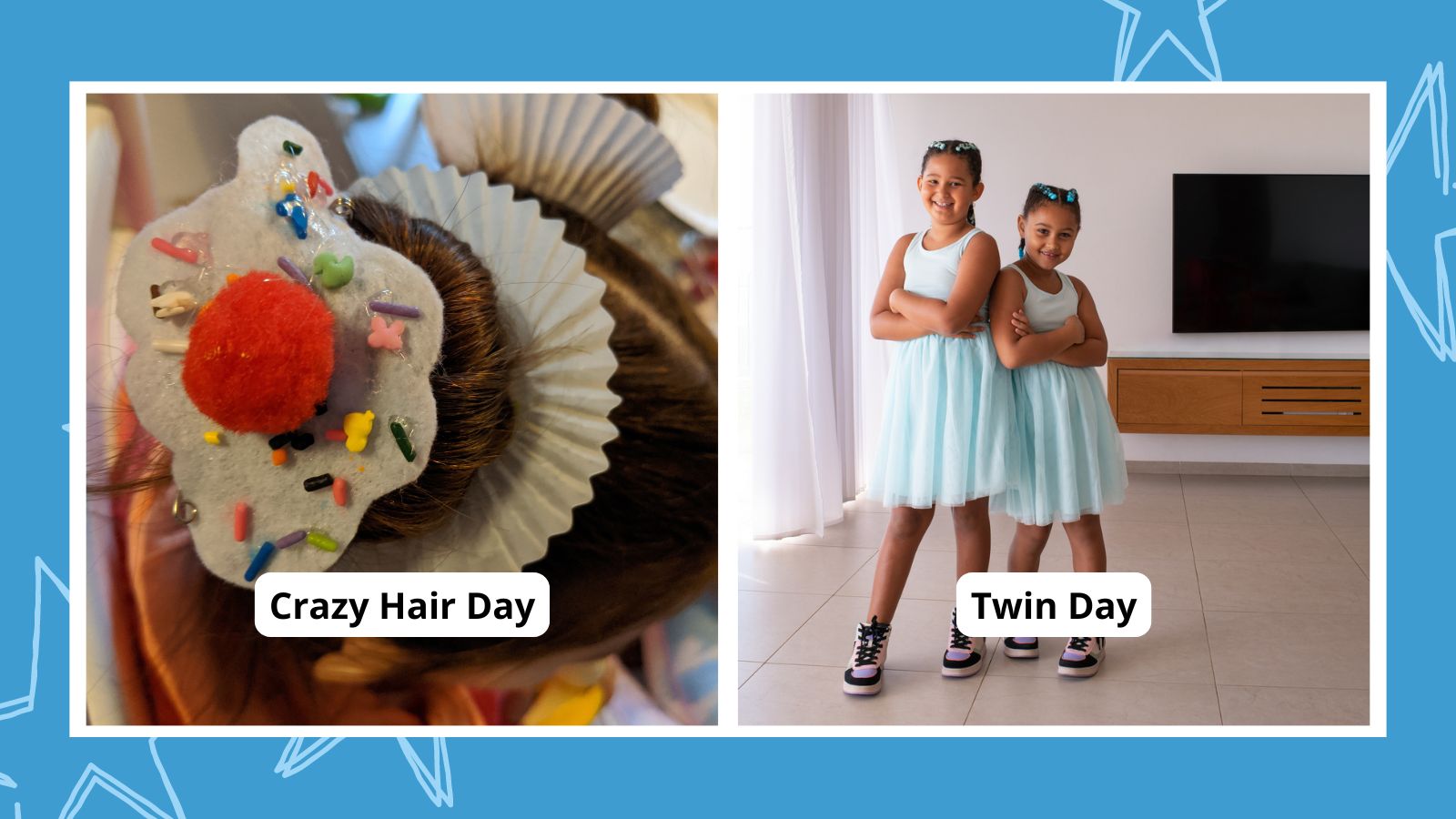There’s a lot to love about spirit week. Pep rallies and trivia contests are great activities to highlight an important event like homecoming while boosting student morale. Dress-up days can also build school spirit, but some themes cross the line. When themes become inappropriate or exclusionary, they do the opposite of promoting a sense of belonging. Here are a few theme days schools should avoid and why.
Crazy Hair Day
On Crazy Hair Day, students are generally invited to wear their hair in a “wild” or “wacky” fashion. The problem is that many of the hairstyles popular on crazy hair day are cultural hairstyles for Black people. In deeming those styles “crazy,” we send the message that there’s something wrong with them. It’s a microaggression, but it’s also part of the hidden curriculum that makes whiteness the norm. And let’s not forget that Black girls are disproportionately policed and disciplined for how they wear their hair.
Instead, try Pajama Day.
Twin Day
Inviting students to dress the same as their best friend is a fun idea in theory, but in practice, it’s problematic. The whole point of spirit week is to make every student feel like they’re part of the school. But when your theme day asks students to partner up with someone in order to participate, you’re going to leave out some children. For students who already have outsider status, this only makes them feel more isolated. Twin Day is also inhibitive for families on limited incomes, as it usually involves a purchase of something new.
Instead, try Mismatch or Inside Out Day.
Girls vs. Boys
Asking girls to wear pink and boys to wear blue only serves to reinforce gender stereotypes. When students internalize limited ideas about gender, it restricts their choices and their potential—from what they wear to the classes they take. A gender war dress-up day also excludes students who identify as non-binary and can cause problems for transgender students. It can also lead to bullying because it reinforces norms that don’t allow for expression outside the “boy/girl” box.
Instead, try Class Color War.
Stoplight Day
A Louisiana middle school came under fire for this particular spirit day, in which students were invited to wear green if they were single, red if taken, and yellow for “it’s complicated.” There’s just so much wrong with this. First, we need to let kids be kids. They have enough going on (especially at middle school age) without added pressure to broadcast their relationship status—if they even have one. Stoplight Day tells vulnerable youth that their worth is defined by whether or not they have a significant other. Not OK.
Instead, try Career Day.
Hobo Day/Thug Day/Redneck Day
Any theme day that invites students to make fun of someone else’s identity is unacceptable. Before you plan a theme day, think about the message you’re sending. Does it encourage students to use cultures as costumes? Will their choices perpetuate stereotypes? What might be the impact on students whose lived experiences are being mocked? As a rule of thumb, just stay away from identity-based spirit days.
Instead, try School Colors Day.
Dress Like a Student Day
As teachers, we love to get in on the fun of spirit days! I remember doing a Teacher-Student Swap Day and being delighted to see kids come in suits or with lanyards and myself coming to school in a sassy Cat and Jack graphic tee like the ones favored by my 4th graders. But it kind of gives me the ick now. Like, it might feel funny to walk around in a hoodie, eating Takis, and saying “Bruh,” but we are in a position of authority over students, and it feels an awful lot like punching down. Dressing like students is also highly problematic when it incorporates elements of cultural heritage in a way that is appropriative and/or denigrating (e.g., a white teacher wearing a silk bonnet).
Instead, try Anything but a Backpack Day. (For teachers, make it Anything but a Briefcase or Teacher Bag Day.)


